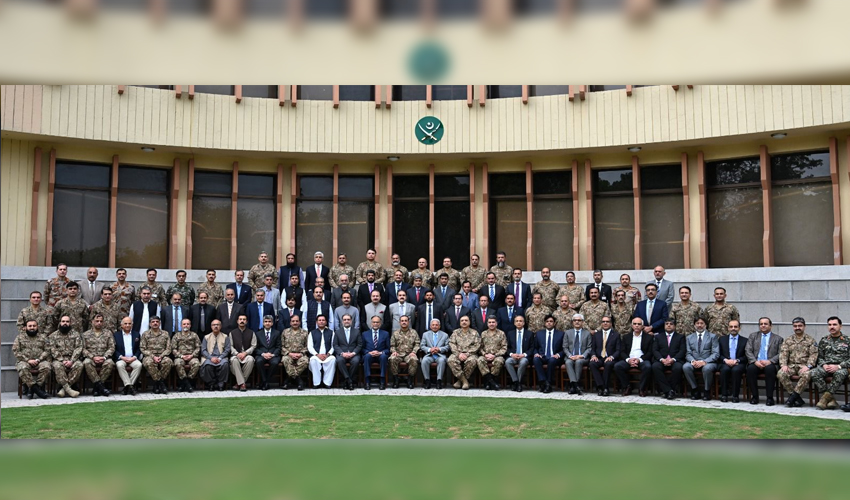COAS stresses commitment to zero tolerance for any form of instability
Gen Munir says complete independence not possible without economic stability
Gen Munir says complete independence not possible without economic stability
Fans eagerly await further updates
Met Dept forecasts heavy rain, thunderstorm, hail across Punjab until April 29
PTA sources claim that Pakistani users will continue to face difficulties during the evening hours.
Highlights her popularity among Pakistani men
Among these officers are those holding Grade 21 and 22 positions
Reprimands the Secretary of the Cabinet Division
The strike also halted PSQCA clearance certificates for importers and exporters
Police will now seize non-customs vehiclesRevenueRevenue
Gen Munir says complete independence not possible without economic stability
The cabinet also approved special court in Makran division for anti-narcotics cases
New rain spell to fall in Lahore with intermittent rains from tomorrow till April 31
Gold price fluctuation are directly linked to changes in value of US Dollar
Wasa, Traffic Police are in the field to facilitate citizens safely to their destinations
Read latest party position in the National Assembly
Among these officers are those holding Grade 21 and 22 positions
Atletico goalkeeper Jan Oblak acknowledges challenges his team faces
PTA sources claim that Pakistani users will continue to face difficulties during the evening hours.
Following the widespread arrests of anti-war protesters, a pro-Palestinian group filed a civil rights complaint against Columbia University
'Establishment of nutrition force topmost priority of Punjab CM', says minister
Owner attributes her unusual colouration to biliverdin, benign bile pigment encountered in womb
Implementing reporting standards 18 has its challenges, but offers long-term benefits

